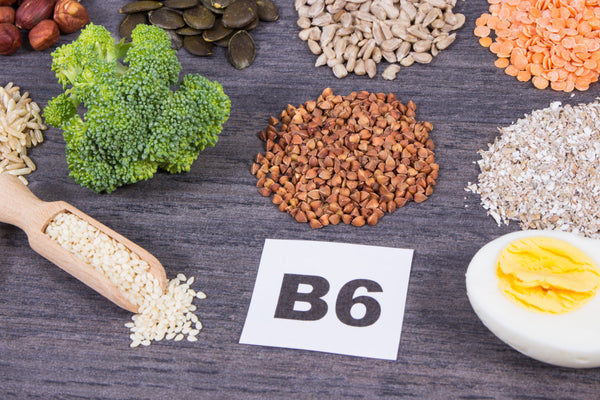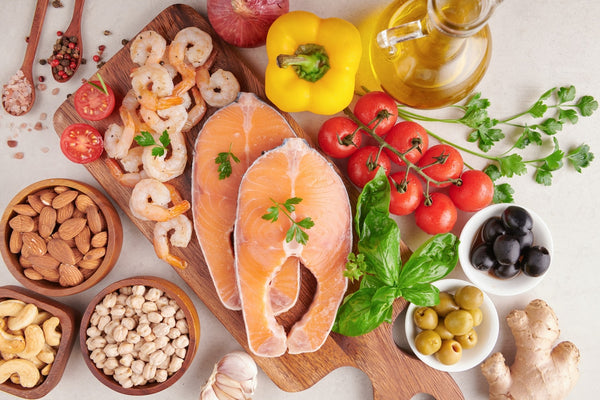
Getting to Know Hypervitaminosis, a Condition In Which The Body Is Excess Vitamins

Vitamins are important substances that the body needs in order to perform its functions normally. Even so, if you consume too much of it, it makes the body excess vitamins or hypervitaminosis. What is the danger if you take excessive amounts of vitamins? Check out the full explanation below.
Types of Hypervitaminosis
You need to know, that the dangers of excess vitamins in the body vary depending on the type of vitamins you consume. Too much consumption of vitamins or hypervitaminosis can be seen in some of the symptoms that occur in the body.
Here are some types of hypervitaminosis and their symptoms, among them:
1. Hypervitaminosis A
Read: This is the Impact of vitamin A Deficiency and How to Prevent It
Vitamin A is necessary for eye health, protects soft tissues in the body, as well as is an antioxidant. This vitamin also prevents dry and flaky skin.
Vitamin A is also important to help the growth of babies and toddlers. However, if you consume too much of it, the body can experience several health problems, among them:
- Recurrent headaches.
- Reddish patches develop on the skin.
- Nauseous.
- Pain in the upper abdomen.
- The skin is dry, rough, and exfoliated.
- Sensitive to sunlight.
- Loss of appetite.
- Pain in the bones and joints.
- The mouth feels dry.
To prevent this condition, do not take vitamin A supplements without prior consultation with a doctor.
2. Hypervitaminosis B
Read: Vitamin B12: Deficiency Symptoms and How to Overcome Them
Not all B vitamins are known to be toxic if consumed in excess of the provisions. But vitamins B3 and B6 can cause health problems, including Vitamin B3 (Niacin). Too much vitamin B3 can increase uric acid levels in the blood.
In addition, an excess of this vitamin also results in symptoms of niacin flush, namely disturbances in blood vessels, and red patches on the skin that itch and feel hot.
In the long run, vitamin B3 poisoning can cause liver damage, especially in someone who has had symptoms of liver disease or hepatitis. Vitamin B6 Taking too much of this vitamin can cause lesions on the skin, and digestive problems, as well as have a negative effect on the brain.
3. Hypervitaminosis C
High doses of vitamin C have been claimed to be very effective in fighting viruses and diseases. In fact, not everyone needs a high dose of vitamin C. You are not recommended to take more than 100 mg per day.
The average adult man needs 90 mg of vitamin C per day, while an adult woman needs 75 mg. In addition, an excess of this vitamin can cause digestive problems such as peptic ulcers, nausea, vomiting, and diarrhea. Eating 1-2 citrus fruits or red guava a day is enough to meet the need for vitamin C.
4. Hypervitaminosis D
Some types of foods high in vitamin D include milk and its processed products, fish oil, and margarine. In some cases, a person needs a high dose of vitamin D, for example, those with bone health problems.
However, this does not mean that taking vitamin D supplements does not need advice from a doctor. Excess vitamin D can result in problems with kidney stones, liver, calcification of the joints, as well as the accumulation of calcium in the blood vessels.
When calcium accumulates in blood vessels, it can cause blockage of blood flow and result in a stroke. In addition, an excess of this vitamin can also cause other symptoms such as:
- Soreness of the bones and muscles.
- Loss of appetite.
- Weight loss drastically.
- Constantly feeling thirsty.
- Constipation.
- Ears ringing.
- Nausea and headaches
- Confusion, disorientation, nervousness, nervous problems, and emotions.
- Arrhythmias.
- High blood pressure.
5. Hypervitaminosis E
Besides being very beneficial for skin health, vitamin E also plays a very important role in increasing the body's immunity. To avoid vitamin E poisoning, do not take this vitamin more than 1000 mg per day.
Adults need only 15 mg of vitamin E per day. Too much vitamin E intake in the long term can cause strokes due to hemorrhages in the brain, prevent blood clots, as well as prostate cancer in men.
6. Hypervitaminosis K
Vitamin K is abundant in soybeans and their derivative products. Per day, this vitamin is only needed by the body about 120 mg. Its main benefit is that it helps with blood clotting and prevents internal bleeding in the body. Taking too much of this vitamin can result in blood thickening.
This will lead to inhibition of the distribution of oxygen and nutrients throughout the body. Clots in blood vessels can result in a stroke.
Preventing Hypervitaminosis
- An excess of vitamins can cause health problems. Even so, this is a preventable condition. Some of the steps you can take include:
- Get used to the consumption of balanced food. Vitamins are obtained from animal and vegetable food sources. Therefore, consume both in moderation.
- Eating fatty foods can also help the absorption of vitamins in the body. About 6 grams of fat per day is needed for optimal absorption of vitamins E, D, and A.
- Drink enough water to get rid of excess water-soluble vitamins, such as vitamins C and B.
- Do not take high doses of vitamin supplements without consulting a doctor. High-dose supplements are needed only by a person who has vitamin deficiencies.






